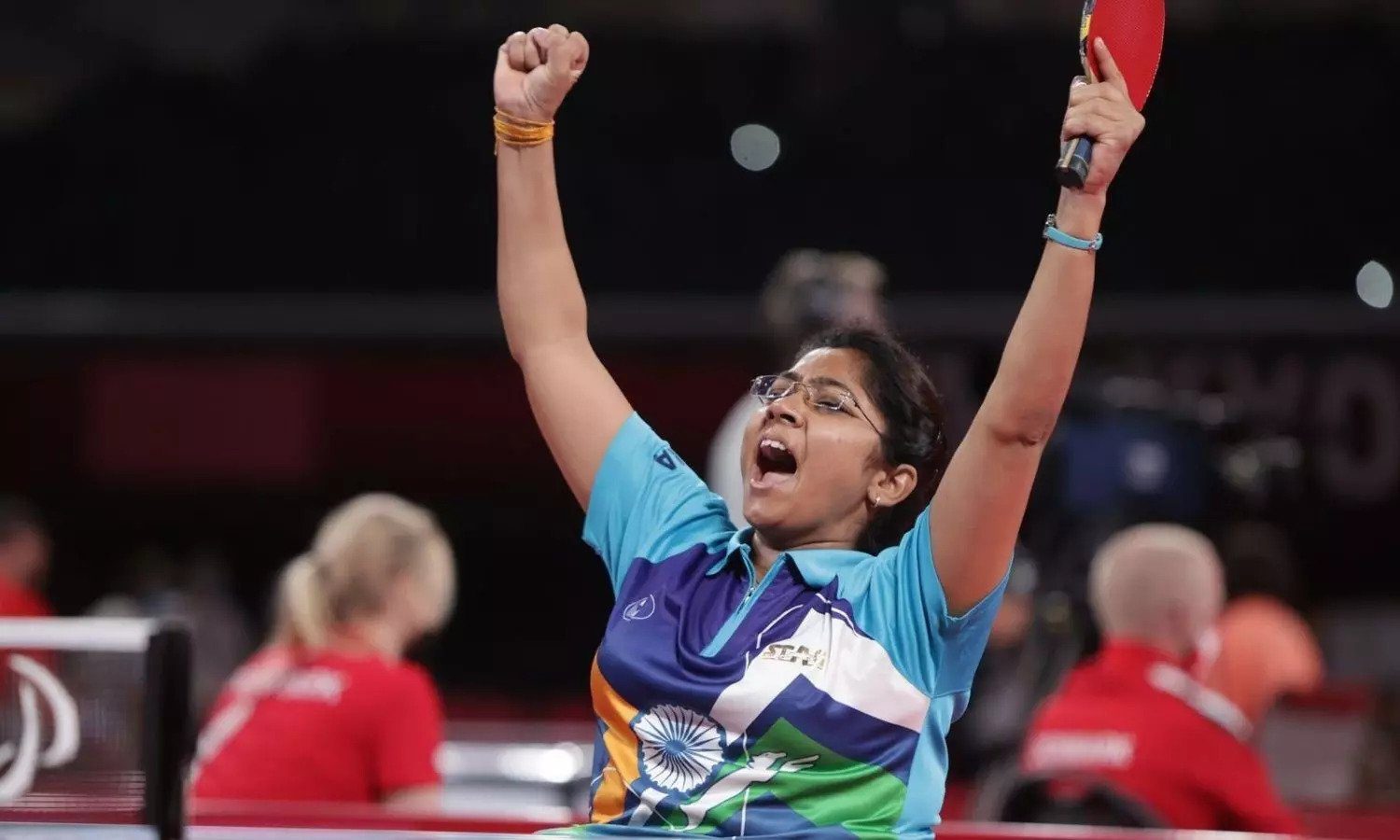(January 6, 2024) Being born with a disability can shatter anyone. But not Prachi Yadav. Paralysed below the waist, she did not let her disability come in the way of realising her dreams. She took the challenges head-on and canoed her way to success, scripting one of India’s most inspirational stories. “I stay focused, work hard and leave the rest to destiny,” smiles Prachi Yadav, the first Indian para canoe gold medallist in the Asian para games, speaking exclusively to Global Indian hours after being listed for the prestigious Arjuna Award.
The announcement didn’t fully take her by surprise. “Based on my achievements, I was hopeful that I would be nominated for Arjuna award,” says Prachi, who is clearly elated. With five gold medals, two silver and one bronze in international events and her splendid performance in the recent Asian Games, it was only a matter of time before her name was shortlisted for the prestigious award.

The Asian Games victory
The para canoeist clocked 54.962 to cover the 500 metre distance and win gold in the KL2 event at the Asian Para Games. The KL2 event is meant for athletes who propel themselves with their arms and partial trunk and leg functions. “I trained for three years for the Asian Games,” says the 28-year-old.
The moment she was declared the gold medallist, Prachi was seen in tears. “I was so happy that tears started flowing down atomatically. I cannot express in words how I felt after winning gold,” recalls Prachi. Para canoeing was introduced for the first time in the Hangzhou edition.
Prime Minister Narendra Modi led the country in congratulating Prachi Yadav. “This was an exceptional performance whichmade India proud,” the Prime Minister said, soon after her victory.
Born and brought up in Gwalior in Madhya Pradesh, Prachi’s mother Chandra Kumari Yadav died of cancer in 2003. It was her father Jagadish Singh Yadav, a retired Deputy Director in Agriculture department, who raised Prachi. “My father encouraged me and pushed me to pursue my dreams. Without him and his support, I would not be where I am today,” says Prachi.

She studied at a school run by Amar Jyoti Charitable trust till class 8 and then went to Saraswati Vidya Mandir from where she completed her class 12. Growing up, she loved to sketch and paint and was always athletic – “Before canoeing, I was a national level swimmer,” says Prachi. In 2007, she began to train as a swimmer at the Lakshmi Bai National Institute of Physical Education.
Taking to the canoe
Prchi loved to swim but wasn’t able to perform as well as she hoped internationally. So, when her coach, VK Dabas, suggested to switch to canoeing in 2015, she followed his advice. Dabas told her that with her height (5 feet 6 inches) and her long arms which would come handy for paddling, she would do well in para canoeing. “I travelled to Bhopal to watch canoeing. Since it was a water sport and an adventurous one, I took it up,” says Prachi, who was honoured with Vikram award by the Government of Madhya Pradesh on National Sports Day in 2020.
Through 2018, she learned the nuances of the sport, putting in several hours of practice everyday under the eye of her coach, Mayank Thakur. Since she couldn’t use the modern boats used by able-bodied athletes, Thakur made her a makeshift variety by attaching an oil drum to the normal canoe boat using a pair of bamboo poles so as to balance it well, on water.
The competition circuit
One year later, she was participating in para canoeing events across the country. In 2020, Prachi became the first ever Indian para canoeist to qualify for para canoe at the Summer Paralympics Games at Tokyo, Japan. Thereafter, with help from sponsors, modern para canoe boats made abroad were made available to her.
Two years later, Prachi won gold at Asian canoe para qualifiers for Asian Para games in Thailand and a bronze at ICF Canoe sprint and Paracanoe World Cup in Poland.
Practice and training
Prachi currently practices in Lower Lake in Bhopal, with Captain PK Baroi of the MP Water Sports Academy. Training begins at 6.30 am and goes on until 9.30 am, followed by an evening session that lasts between 3.30 pm and 7.30 pm. Prachi also found love along the way and married canoeist Manish Kaurav more than three years ago.

Prachi and her husband, Manish Kaurav
The boats used by her are different from those used by able bodied athletes, says Prachi, who participates in VL2 (Va) and KL2 (Kayak) categories. While the Kayak boat is slightly wider than the usual one, Va boat comes with a supporter which ensures good balance. Canoeing requires strong arms, so Prachi also takes protein supplements and energy drinks besides the regular food served at the water sports academy, and goes to the gym as part of her rigorous training. “I do CrossFit and circuit training to keep fit and use ergometers for technical training as well.”
So what’s next ?
“I am preparing for Asian Championship in Tokyo, Japan followed by the World Championship in Hungary and Paralympics in 2024,” informs the para canoeist, who won gold medals in VL2 and KL2 events at Asian Canoe championships in Samarkand, Uzbekistan.
Ever since she made it big in para canoeing, Prachi has been flooded with calls from people who not only see her as an inspiration but also want to follow on her footsteps. “It’s nice that people, especially those with disabilities, are showing interest in learning para canoeing. I advise them to start with swimming first,” says Prachi, who is completely focussed on winning gold at Paralympics next year.

Prachi is also toying with the idea of opening an institute where she can coach para canoeists. “I haven’t thought about it much but might do that at a later stage. I would like to train para canoeists who can win medals for our country.”
- Follow Prachi Yadav on Instagram




